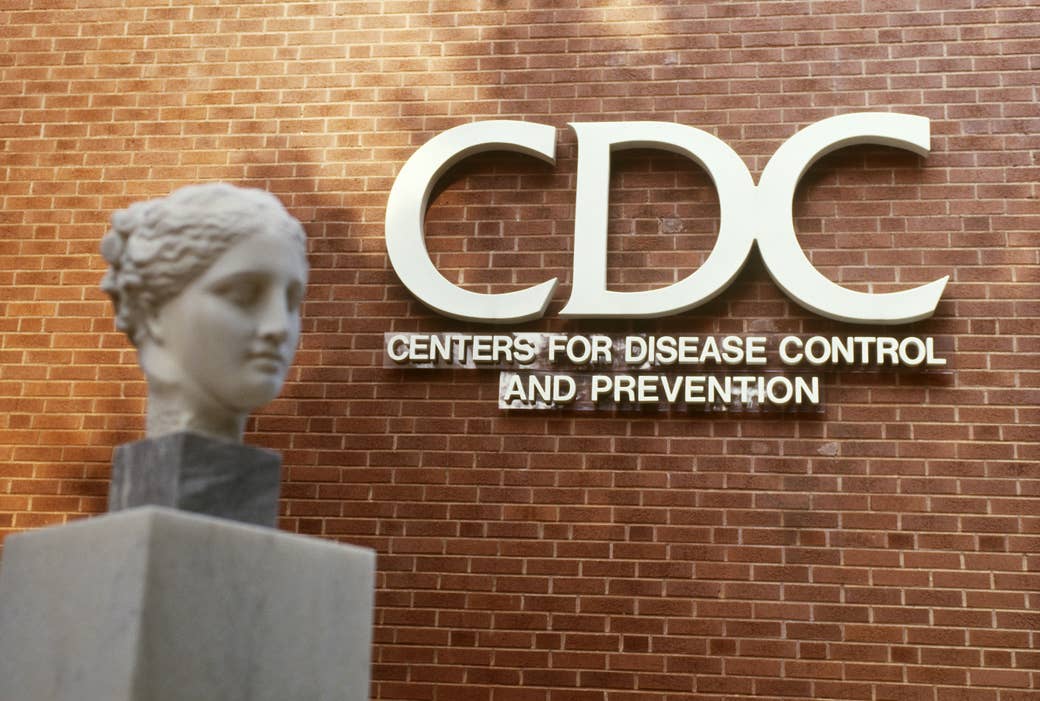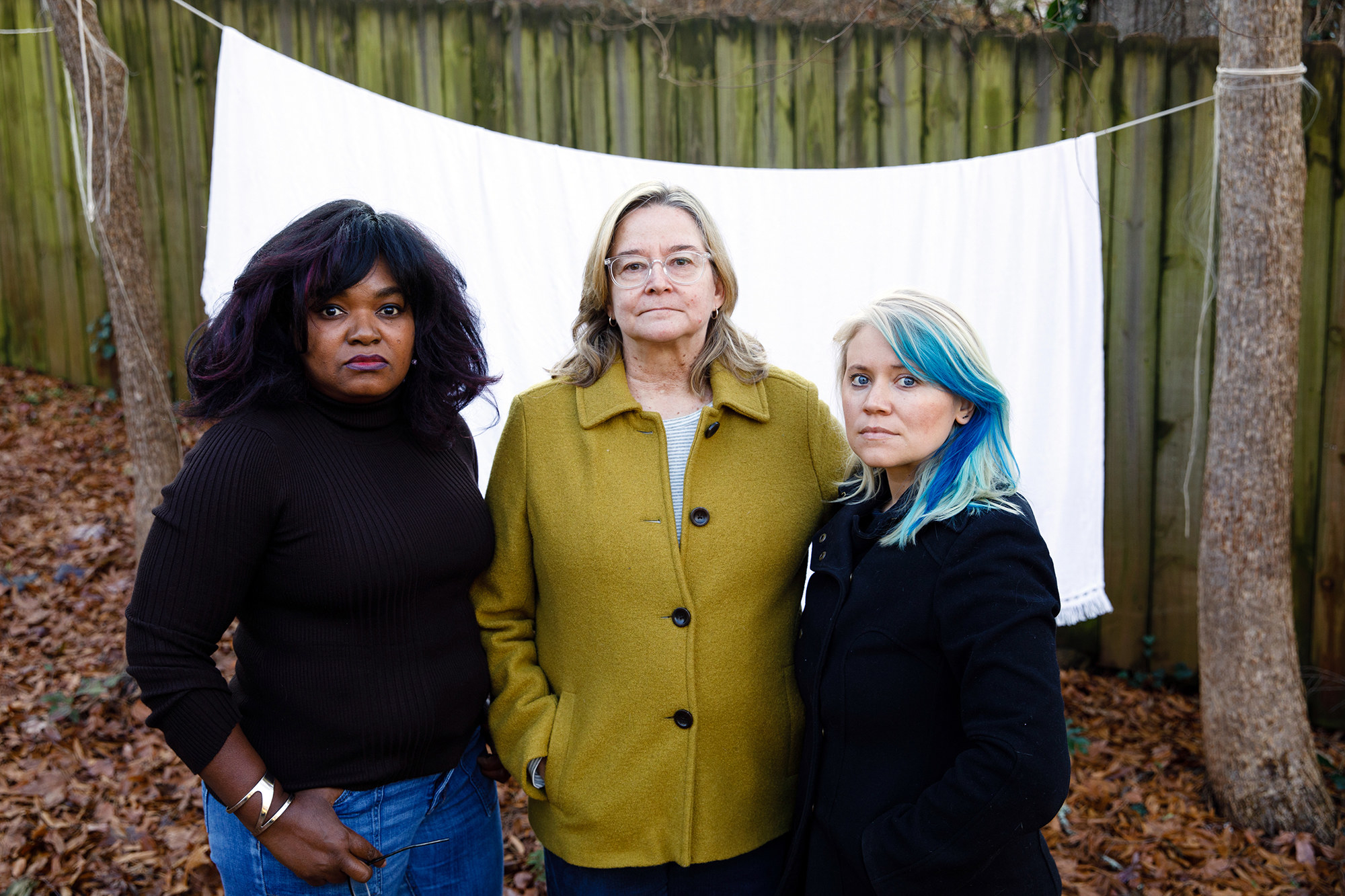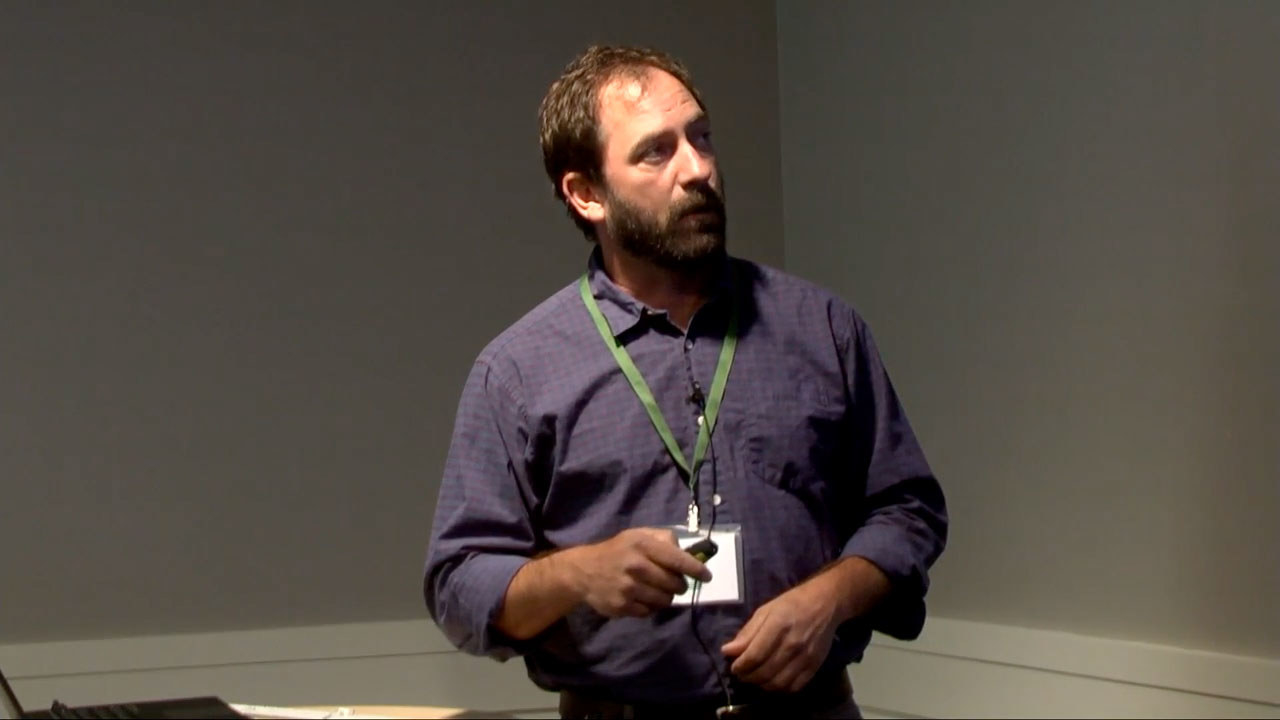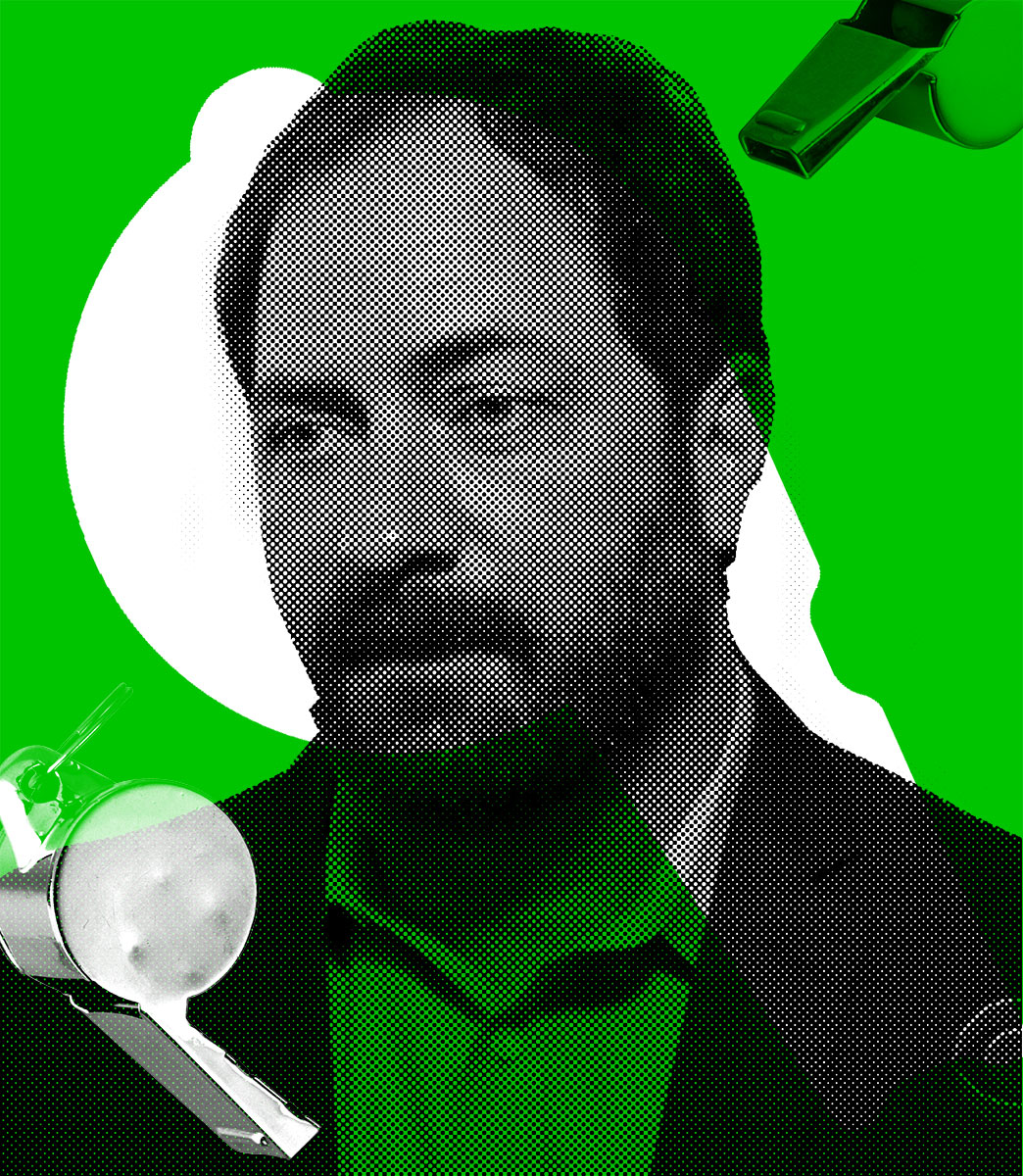In December 2018, George Luber, a top climate expert with the CDC, declared himself the latest victim of the Trump administration’s war on science.
As Luber later alleged in a whistleblower complaint filed to the US Office of Special Counsel, officials at the CDC tried to censor work on climate change shortly after the 2016 election; this included canceling a major climate conference he'd organized, trying to take away funds earmarked for the Climate and Health Program he oversaw, and even trying to stop him from using the words "climate change."
In response, Luber said, he fought back. Agency officials then put him under investigation, removed him from climate work, barred him from showing up unannounced to the campus where he’d worked for nearly 20 years, and tried to fire him.
His story, first reported by the New York Times and then covered by many others in the press, sparked widespread outrage from former government officials to climate activists to Sen. Bernie Sanders, echoing many other cases of the Trump administration censoring, ignoring, and undermining climate scientists.
But Luber’s powerful narrative, according to about a dozen current and former staffers and people involved in the investigation, was false. His ouster from the agency’s climate program, they say, was for a less heroic reason: He was behaving badly in the workplace, particularly toward women.
BuzzFeed News has learned that the scientist was kicked out of the CDC’s climate program shortly after five women on staff accused him of absenteeism, misuse of agency resources, and sexist behavior — including one instance in which he called a woman employee “a naughty girl,” another in which he shared a naked photo of himself with a subordinate, and several times when he joked about making an app for hooking up with twins and triplets. One black staffer alleged that Luber made inappropriate comments to her about race, and three others said that Luber repeatedly mistreated her.
As the CDC investigation expanded to include interviews with the rest of the staff, the allegations about Luber’s offenses increased.
This reporting is based on more than 1,000 pages of emails, calendars, text messages, sworn statements, internal CDC documents, and recordings, as well as interviews conducted by BuzzFeed News. Four of the complainants are going on the record publicly for the first time.
When BuzzFeed News asked Luber for an interview to discuss these allegations, Kevin Bell, Luber’s lawyer with Public Employees for Environmental Responsibility, a government watchdog group, said that it would be Luber’s “first interaction with what could potentially be unfriendlier reporting.” Luber declined the interview request, but sent statements through his lawyer.
“PEER is defending Dr. Luber against dozens of minor and baseless charges levelled by CDC,” Bell said in an email. “The serious allegations about inappropriate behavior reported by BuzzFeed are not among the charges brought. PEER continues to assert that the charges against Dr. Luber were brought as retaliation for his advocacy for the efficacy and independence of the CDC’s climate and health program.”
In a follow-up statement, Luber explicitly questioned the character and motivations of the accusers, claiming their efforts “to paint me as dishonest, sexist, absentee boss, are absolutely false, and driven by personal agendas.”
Luber has dominated the public narrative, talking to the press about how the CDC censored him and winning accolades along the way. Meanwhile, the agency has remained silent on the investigation, which has dragged on for nearly two years. And the staffers who originally came forward are frustrated that, even at the height of the #MeToo movement, the allegations of sexist behavior have seemingly been disregarded.
The CDC declined to comment on any of the allegations made against Luber or on its handling of the investigation.
“George Luber is no whistleblower. He is a perpetrator,” said one person involved with the investigation who spoke on the condition of anonymity because of their current job. “There’s a great deal of evidence of unprofessional conduct and inappropriate treatment of women, as well as leadership and management failings.”
Although the agency’s climate work continues — some say more effectively than when Luber was there — morale is low. Three high-profile CDC officials have resigned, allegedly because the agency had “botched” the investigation, and some climate staffers have left due to the chaos. Several employees fear that Luber’s aggressive public relations campaign could result in him coming back.
“He cannot come back,” Chelsea Austin, a member of the Climate and Health Program and one of the women who initially came forward, told BuzzFeed News. “If nothing else, for the damn sake of climate change.”

Luber does have a claim to make that he's something of a champion for climate science. Over more than a decade as an epidemiologist at the CDC, he became a prominent voice in an emerging field studying the ways climate change is harming people’s health. A regular on the conference circuit and as a climate expert in the press, he has issued warnings about how warming has driven Lyme disease into new pockets of the US, how intense heat waves in Europe and Russia have killed thousands of people, and how natural disasters have had lasting negative impacts on mental health.
He has authored more than 50 scientific publications, including the seminal US climate change reports, the National Climate Assessments. He flew in a helicopter with Matt Damon explaining the effects of extreme heat on urban areas in a 2014 episode of the documentary series Years of Living Dangerously.
But after Trump became president, Luber said, his public profile took a hit.
In fall 2016, Luber was finalizing a CDC climate symposium that would feature former vice president Al Gore as a keynote speaker the following February. But shortly after Trump was elected, Luber’s managers ordered him to cancel it, according to his whistleblower complaint.
“These managers expressed that they thought it would be politically unwise to have such a high-profile conference about climate change weeks after the inauguration of President Trump,” the complaint stated.
Luber said he pushed back. “Dr. Luber insisted this sudden about-face on an existential issue would undermine the scientific integrity of the agency and the public’s faith in the CDC and in climate science generally,” the complaint said.
The weeks following Trump’s inauguration were a period of heightened fear and uncertainty among the climate community. At the time, there were reports of gag orders on federal scientists (some of which turned out to be overblown), climate-related tweets from agency accounts getting deleted, references to climate change removed from federal websites, and people nationwide desperately scrambling to preserve scientific data they feared might soon disappear online.
News of the canceled CDC summit leaked to the press, spurring Gore and others to host the event instead.
According to Luber, CDC officials believed that he may have been responsible for the leak and banned him from speaking to the media and giving talks. He also alleged that Patrick Breysse, the director of the CDC’s National Center for Environmental Health, told him to use words like “extreme weather” instead of “climate change.”
Luber also accused the CDC of threatening to undermine and take money from the Climate and Health Program in an agency reorganization.
Breysse denied Luber’s many climate censorship claims and declined to comment on the ongoing investigation.
Asked about Luber’s allegation that he told him to stop using the words “climate change,” Breysse acknowledged that they did discuss different ways to label the Climate and Health Program, but “none of those discussions resulted in any change.” As for whether CDC tried to take money away from the climate program as part of the reorganization, Breysse said, “My comment is simply that is not true.”
Current and former staffers who spoke with BuzzFeed News provided a messier account of events.
Several staffers said that it was widely understood within the CDC that the agency had canceled the 2017 climate conference in an act of self-censorship, fearing how Trump would respond. They also viewed the decision to slot the climate program into a new branch without “climate” in its name as a deliberate attempt to downplay their research, but they did not recall ever receiving an official order trying to censor their work.
In response to these allegations from his staff from BuzzFeed News, Luber provided contradictory responses about whether it was well understood within the climate program that censorship was going on. He added that the climate team’s budget was “the sole job of the chief” and that “I know I was asked to misappropriate funds.”
Kenneth Archer, Luber’s former deputy who was placed under investigation with him in March 2018 but was ultimately brought back and demoted, said the CDC had resented Luber’s outspokenness for years and had been looking for an excuse “to remove him or silence him.” But Archer, who retired at the end of 2019, could not recall a single instance of censorship apart from the conference cancellation nor a blanket media or public speaking ban on Luber.
Seven current and former staffers disputed Luber’s claims that he was silenced at the agency under Trump’s presidency; they pointed to examples in the public record of the scientist giving climate talks well into 2017, including at Gore’s makeup climate summit, as well as one case of him telling reporters that there was no climate censorship happening at the CDC. Current staffers also said there has been no change to their mandate and that there have been no funding cuts since the reorganization.
The same seven staffers, all of whom participated in the eventual investigation into Luber, agreed on one more thing: Luber was not pushed out over climate censorship.

On Feb. 16, 2018, CDC officials announced that Luber would be promoted to lead the new Asthma and Community Health Branch.
In a single week following the announcement, four climate staffers came forward with complaints about Luber’s treatment of employees, especially women: public health analyst Jane Horton, program evaluator Chelsea Austin, epidemiologist Kathryn Conlon, and administrative assistant Deneise Turner. (Horton and Conlon have since left their roles at the CDC.) A fifth woman came forward shortly after.
It was not the first time complaints had been made against Luber. In 2013, Turner had reported Luber to a high-ranking CDC official for demeaning behavior toward her and contacted the agency’s Office of Equal Employment Opportunity, according to internal emails reviewed by BuzzFeed News. In 2016, Horton said, she reported Luber and Archer for workplace bullying.
The chorus of complaints included allegations of Luber’s misogyny in the office. He was accused of lashing out at women and telling lewd jokes, including calling one colleague “a naughty girl.” He allegedly talked about using a heart rate monitor during sex, gave a woman staffer, while in the office, a photo album that included a naked picture of himself, and repeatedly joked about wanting to create an app for hooking up with twins and triplets.
Turner, who is black, also alleged Luber made inappropriate comments to her about race and apartheid. She shared these remarks with at least one other colleague, emails show. Moreover, Austin, Conlon, and Horton alleged that Luber routinely targeted Turner, speaking to her in a disparaging way in public and scapegoating her for problems in the office.
“I have had a fear of speaking out about the things that I have had to suffer through working here,” Turner later wrote in an email sent to a consultant working with climate staff. “I am tired of sitting at my desk and crying about how I’ve been mistreated.”
The women complained about Luber’s preferential treatment of men in the office. They provided examples of Luber allegedly promising women in office leadership positions on projects, travel opportunities, and promotions that never happened.
And they described his absenteeism: They alleged that Luber often ditched work trips early, once leaving a work conference in Alaska to go on a fishing trip, and was known for blowing off meetings and not responding to emails.
“He wasn’t a boss — he was a one-man speaking tour and publishing tour,” said Horton, who retired from the climate program in 2018. “I can’t tell that he managed that program. I think it went along on its own.”
In response to these allegations, Luber, through his lawyer, explicitly denied the “naughty girl” comment, as well as the incidents with the heart rate monitor and photo album. He also stated that he “put in inordinate amounts of time working” in his role at the CDC up until 2017, when he had a heart attack. “Recovering from a heart attack does not constitute absenteeism,” Luber said.
Luber did not respond to a request to comment on Turner’s allegations about inappropriate remarks to her about race. But in a previous response to the CDC, he called her claim a “wildly inappropriate accusation.”
CDC leaders met with the complainants several times and formally launched an investigation in early March 2018, according to internal calendars and emails reviewed by BuzzFeed News.
“We understand the seriousness of these claims and the concerns you all have of speaking to us,” John Tibbs, one of the CDC officials tasked with conducting the investigation, wrote in a March 7 email obtained by BuzzFeed News. “If required, we have the authority to take action.”
“He wasn’t a boss — he was a one-man speaking tour and publishing tour."
That all came to a head at an Asthma and Community Health Branch meeting on March 19. According to seven people present for the meeting, as well as text messages sent at the time, Luber joined the meeting after it was already announced he wouldn’t be attending. He told the group that he’d just learned there had been accusations made against him, that he was being placed on administrative leave, and that he’d probably be fired. (Luber disputed that he said he’d be fired to BuzzFeed News.)
He also spoke about how he grew up in South Africa during apartheid, bore witness to structural racism, and described how he was opposed to any kind of unequal treatment or harassment, according to the text messages and witnesses.
In his final address to staff, Luber made no mention of climate change censorship. He then exited the building.

In spring 2018, the CDC expanded its investigation, conducting interviews with most of the dozen or so staffers on the Climate and Health Program. Seven of these staffers, including the women who initially came forward, spoke to BuzzFeed News.
Many of them told the investigators that Luber fostered a frat-like culture and was an absent boss. They also alleged that Luber pressured staffers to work on his outside projects — including guest lecturing for his class at Emory University or helping to write a textbook chapter — even if they viewed the requests as good gigs.
“As horrible of a boss as he was, he gave me all these opportunities,” one former staffer, who spoke on the condition of anonymity out of fear of retaliation from Luber, told BuzzFeed News.
On Oct. 22, 2018, investigators held a meeting with a handful of women staffers and announced the CDC would soon be presenting findings from their investigation and their recommended discipline for Luber. The staffers recalled being told that nothing had been finalized — Luber would still have a chance to respond to the allegations, and the investigators warned that he or his lawyers could target them as a result of their complaints.
That same day, the CDC’s Breysse notified Luber of the agency’s plan to fire him.
The agency ultimately brought four charges against him: first, falsification of time/attendance records, citing 23 examples; second, failure to obtain prior approval to engage in outside activities; third, misuse of position, citing cases of him asking women to teach for his outside class or work on a personal book; and fourth, conduct unbecoming of a federal employee, listing examples where he ditched work events or was intoxicated. The charges did not mention any of the complaints of sexism or inappropriate comments.

On Dec. 20, 2018, Luber went public. The New York Times published a bombshell story, “Climate Team, and Its Boss, Just Got Harder to Find at Top Health Agency,” that has come to define the narrative around the investigation.
The Times story reported the CDC’s climate program had been “quietly folded” into a new branch that “expunged the word climate from the name.” The story detailed Luber’s claims of climate censorship and described how he’d been recommended for dismissal until his legal team said it was considering filing a whistleblower complaint.
That same day, Luber’s legal team published a series of documents tied to the investigation, declaring him a victim of “persecution.” The release included the CDC’s recommendation of his dismissal and the accusations against him, his response, and the agency’s retraction notice.
For the people who participated in the CDC’s investigation, particularly the women who first came forward, the move was a gut punch. This is when they learned Luber had been recommended to be fired and that the CDC had taken it back. For the first time, they also got access to the CDC’s list of allegations against Luber, where they saw some of their names released to the public but no mention of what they felt were some of the most damning claims.
“We definitely have felt like the most egregious things we had to offer were the least useful, and that’s been massively disappointing,” Austin said.
But perhaps the most jarring piece of the document dump was Luber’s own accusations against his former staffers. He accused his administrative assistant, Turner, of tampering with his timekeeping records, attributing her actions to “the fact that we had begun to initiate significant disciplinary action against her.” Luber went on to say that Conlon’s participation in the investigation was “motivated by an act of revenge” over a disputed performance review. (Luber denied the other charges CDC brought against him, chalking them up to misunderstandings, personal mistakes, agency errors or inaccuracies, or falsehoods.) Both women have denied Luber’s claims.
On a recorded January 2019 call with one of the complainants, obtained by BuzzFeed News, CDC ethics director Carolyne St.Louis said that some high-level officials involved in the investigation felt the agency “botched” Luber’s case and had resigned. St.Louis declined to comment to BuzzFeed News.
On the call, St.Louis described her understanding of CDC’s motives in the investigation. “Frankly, the agency is concerned about protecting itself rather than protecting you all, and that’s the bottom line,” she said. “It’s most unfortunate in this situation.”
In early 2019, the CDC brought in an outside consultant to conduct recorded interviews and, for the first time, get sworn statements for the ongoing investigation.
If this was an attempt to assuage current and former staffers that the CDC was still committed to the investigation, it didn’t work. Horton, who had since retired, was never asked for a statement. Four people said the sworn statements were riddled with typos and factual errors, that they were given only a few days to edit and sign them, and that they were never notified about whether the statements were used to bring charges. Conlon’s statement, which she said she refused to sign because of errors and not having enough time to run it by a lawyer, was used without her knowledge.
“Frankly, the agency is concerned about protecting itself rather than protecting you all, and that’s the bottom line."
Multiple employees shared the names of former staffers who they said could substantiate their claims or add new ones, especially involving inappropriate remarks, sexism, and mismanagement. But months later, the CDC has apparently not followed up on these leads. BuzzFeed News confirmed with at least three people whose names were recommended that they were never contacted for the investigation.
Despite new allegations of inappropriate behavior surfacing in the sworn statements, the CDC delivered a similar set of charges to Luber in July, according to documents released by his legal team. The agency recommended Luber be suspended for four months.
Although not included in the listed reasons for Luber’s proposed suspension, the agency concluded that the investigation revealed a history of troubling interactions with staffers. “Recent inquiries into Dr. Luber’s interactions with CDC staff reveal he does not get along well with many employees, including women and subordinates,” the agency wrote on July 1. “In particular, it has been reported that he has made derogatory comments about women to the staff, disparaged employees in the presence of others, and generally engaged in abusive conduct toward subordinates.”
A month later, Luber’s legal team responded to CDC, again either denying or arguing with the charges laid against him, and also filed an official whistleblower complaint with the Office of Special Counsel. It’s unknown if the agency has started investigating. The agency “cannot comment on or confirm the status of specific investigations,” spokesperson Zachary Kurz told BuzzFeed News in an email.

Since the official whistleblower complaint has been filed, it’s unclear how the CDC’s ongoing investigation will be impacted or what will happen to Luber.
In November, Luber appeared on Ralph Nader’s podcast, where the host kicked off the show by saying the interview was going to “show what heroism was really about.”
Despite the July recommendation that Luber be placed on leave for four months, he told Nader that he has been working on assignments not related to climate change. “I work from home 100% of the time, isolated,” he said.
“And what's left in the program, unfortunately, is not much expertise,” Luber told Nader. “And that is really what loss is — the core knowledge base that we need in order to move this forward. We're left with individuals with not much experience or credentials on this.” He also said his former staffers were secretly rooting for him, but they were afraid to speak out and were being told by the CDC not to speak to the press.
The current climate staffers who spoke to BuzzFeed News vehemently disagreed, arguing that the program is not just carrying on — it’s doing better.
“We still have expertise in-house. We’re still doing our work. We are not misappropriating our money,” one longtime CDC climate staffer told BuzzFeed News.
Two staffers, including Austin, said in their sworn statements to the agency that the program has been better managed since Luber left. “The amount of assistance I get now is the most it has been since coming to CDC,” Austin’s statement said.
After three years of the Trump presidency, the CDC has expanded its climate and health funding to 29 states, cities, counties, and tribes, up from 18 in 2016. And in March this year, the agency will be hosting a climate symposium in Atlanta. The conference will be smaller in scale than the event Luber tried organizing three years earlier, but will feature “researchers conducting cutting-edge climate and health work.”
Although some people on staff told BuzzFeed News they are excited about the summit, they also viewed it as the agency’s strategic rebuke to Luber’s claims. It’s both a “legitimate conference” run by the climate program and an attempt to “respond to Luber,” said one climate official involved in the planning. ●
Opening image: CBS This Morning via YouTube; Getty Images.


